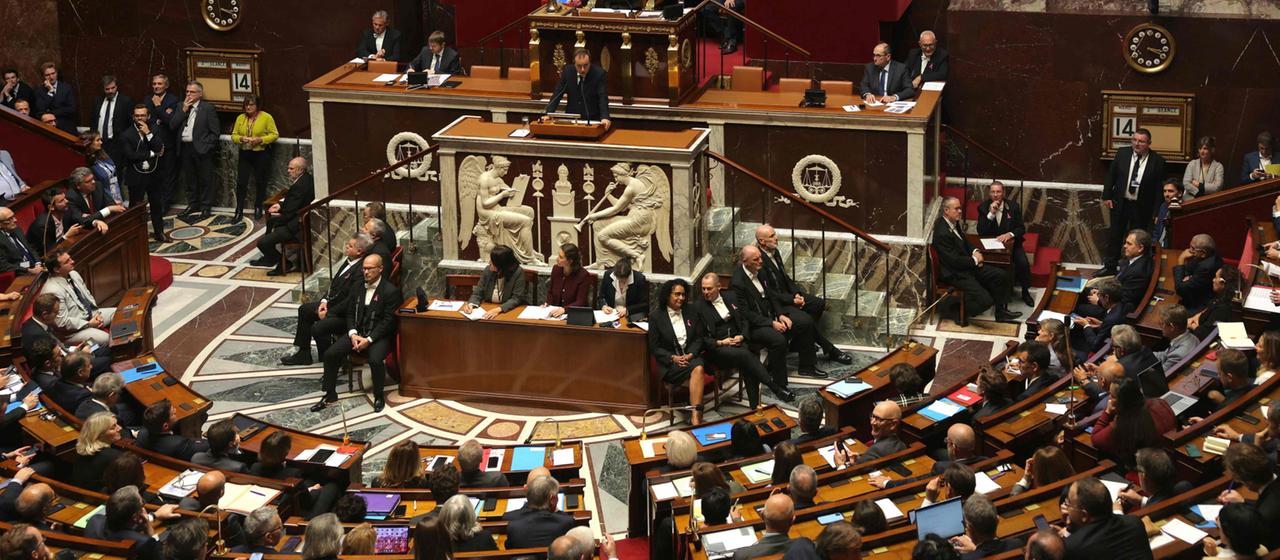
analysis
French Prime Minister Lecornu has approached the Socialists: By making extensive concessions, he is taking financial risks to avoid new elections – and to ensure political stability, at least for the time being.
The concession demanded by the opposition Socialists was delivered as ordered. France's reappointed Prime Minister Sébastien Lecornu forced the decision to immediately put on hold one of President Emmanuel Macron's central reforms—the pension reform painstakingly introduced just two years ago.
"I will propose to Parliament this fall that we suspend pension reform from 2023 until the presidential election. From now on, there will be no increase in the retirement age until January 2028."
To spontaneous applause from the Socialists around former President François Hollande in the National Assembly, Lecornu announced that he would suspend the gradual increase in the retirement age from 62 to 64, as well as the corresponding extension of the contribution periods, until January 2028. This is intended to await the outcome of the presidential elections in spring 2027. President Macron will then not be allowed to run again.
Socialists celebrate suspension of pension reform
Despite the clear announcements, the Socialists made things tense and initially had to withdraw outside the plenary session for consultations. It wasn't until more than two hours after Lecornu's offer that the expected response from parliamentary group leader Boris Vallaud came in the National Assembly:
The suspension of pension reform – it's finally here. We see this as a victory and the first step toward further steps, namely the blockade and eventual abolition of pension reform.
Waiver of vote of no confidence
The Socialists nevertheless had little to say about the Lecornu government, but for now they refrained from holding a vote of no confidence. This means that new elections in France are off the table for the time being.
The votes of no confidence proposed by the far left and right on Thursday are unlikely to gain a majority. Prime Minister Lecornu's newly formed center-right government has bought itself some time, at least for the next few days and until the planned changes are presented in concrete terms.
After the false start of his first appointment as prime minister about a week ago, Macron confidant Lecornu wants to distance himself somewhat from the president and give the National Assembly more accountability:"The government presents the budget it considers desirable. Parliament examines, debates, and amends it. This is within its freedom and responsibility. Without an absolute majority and special procedures to circumvent a vote, Parliament will have the final say. We must trust it and not be afraid of it."
Most important goal: a budget for 2026
The most important goal now is to draw up a budget for the coming year. Lecornu has already submitted a first, non-public draft to the Court of Auditors. According to this draft, the new government is expected to save a total of €30 billion in 2026. This is already €14 billion less than under his ousted predecessor, François Bayrou. In the draft budget, Lecornu is targeting a budget deficit of 4.7 percent of gross domestic product for the coming year.
In parliament today, the prime minister declared that the deficit must be at least below five percent after the conclusion of parliamentary deliberations. This gives Lecornu the necessary leeway to suspend the pension reform and potentially make further concessions to the opposition.
But whether this will convince the financial markets that France will bring its deficit back below the three percent threshold prescribed for the Eurozone in the foreseeable future is questionable. France is heavily indebted and is forced to take on new debt at ever-increasing interest rates. The Lecornu government is now accepting the increasing financial risks in order to avoid new elections and ensure political stability, at least for the time being.

